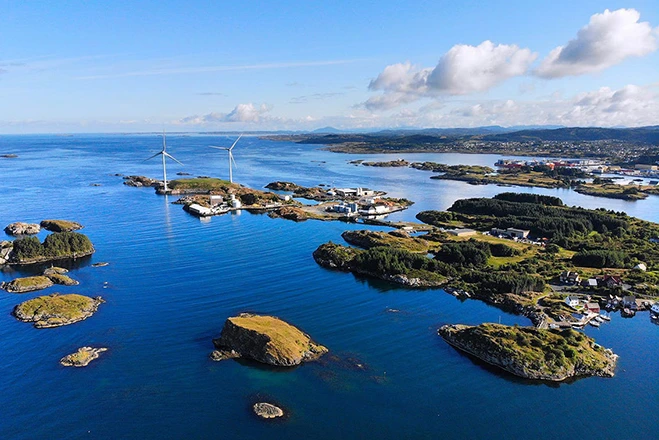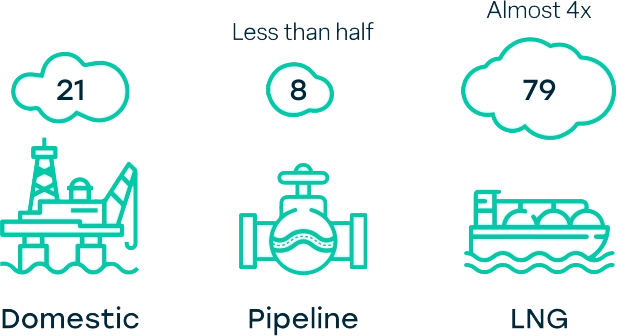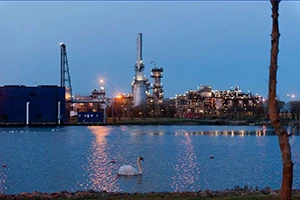
Energy Transition

Where are we today?
Oil and gas are still the dominant source of energy in the UK, accounting for about 75% of our total consumption. While overall consumption has decreased and renewable sources have grown, our reliance on oil and gas has remained relatively consistent over the past decade:
Summer gas supply volumes (bcm) by source – historical (2018-2023), and forecast (2024)*
| bcm | 2018 | 2019 | 2020 | 2021 | 2022 | 2023 | 2024 forecast |
|---|---|---|---|---|---|---|---|
| UKCS | 16.8 | 16.9 | 15.9 | 12.2 | 17.2 | 16.6 | 16.2 |
| Norway | 13.3 | 9.8 | 8.8 | 12.7 | 13.2 | 7.1 | 7.4 |
| Continent | 0.1 | 0 | 0 | 0.1 | 0 | 0 | 0 |
| LNG | 1.4 | 6 | 7.1 | 5.1 | 9.8 | 6.4 | 3.9 |
| Storage | 1.3 | 1.4 | 1.3 | 1.3 | 2.1 | 1.6 | 1.6 |
| Total | 32.8 | 34.1 | 33.1 | 31.5 | 42.2 | 31.8 | 29.0 |
Where are we headed?
At 21 kg CO2/barrels of oil equivalent*, the average carbon intensity** of UK gas production is lower than the average carbon intensity of all sources of natural gas imported to the UK (except pipeline imports from Norway).
2022 average carbon intensity (kgCO2/ boe)

SOURCE: North Sea Transition Authority
The average carbon intensity of imported Liquefied Natural Gas (LNG) is almost four times the carbon intensity of UK production.
Given the lower carbon footprint of producing domestic versus imported hydrocarbons, maximising domestic production is critical to achieving net zero:
*All estimates of carbon dioxide emissions and carbon intensities are sourced from RystadEnergy’s Gas and LNG trade emission analysis dashboard (July 2023).
**Carbon intensity = Carbon dioxide (CO2) emissions per barrel of oil equivalent (boe) produce
How will we get there?
The North Sea Transition Authority (NSTA) is a consortium of government, industry and other regulators established to guide and govern the UK’s offshore energy sectors, as we transition to net zero.
Working together with our energy industry partners, we are fully committed to realising the NSTA’s net zero strategy. We will continue to secure a safe and reliable supply of domestic gas whilst developing home-grown hydrogen and carbon storage solutions. The same pioneering attitudes and collaborative expertise that first led to North Sea oil and gas production can lead us into a net zero future, exploiting existing capabilities and technologies along the way.
Decarbonising the energy sector
We’re driving down greenhouse gas (GHG) emissions created by the production, transportation and processing of natural gas. We’re rapidly reducing, and where possible, phasing out gas flaring. We’re finding ways to decarbonise our transportation and processing infrastructure via carbon capture and storage options, electrification and switching to alternative cleaner fuels.
Supporting reliable domestic supply as cleanly as we can
The energy transition needs a reliable supply of domestic gas even as demand falls and alternatives become more dominant. We can deliver up to 26% of the UK’s daily demand for gas, and we’re committed to doing that as efficiently as we can by providing reliable and cost-efficient midstream services to enable upstream shippers to maintain and extend production on existing fields.
Partnering for net zero: The Acorn Project
We’re forging new partnerships in pioneering technologies like CCS and Hydrogen production. We are actively looking at opportunities to collaborate on other projects that will help unlock a net-zero future for the UK, including renewables and electrification. We’re committed to helping the workforce and supply chains transition successfully for a net-zero economy.
The Acorn Project
Located at our St Fergus site, the Acorn project is a joint venture between Storegga, Shell UK, Harbour Energy and North Sea Midstream Partners.
The project will tackle climate change using carbon capture technology, our existing gas pipelines and world class CO2 storage resources to reduce emissions from industrial sites across the UK and, potentially, beyond.
Plans for Acorn also include a hydrogen plant to transform natural gas into hydrogen, a cleaner alternative for energy generation. The CO2 generated from the transformation process will be captured and stored using the Acorn CCS infrastructure.




